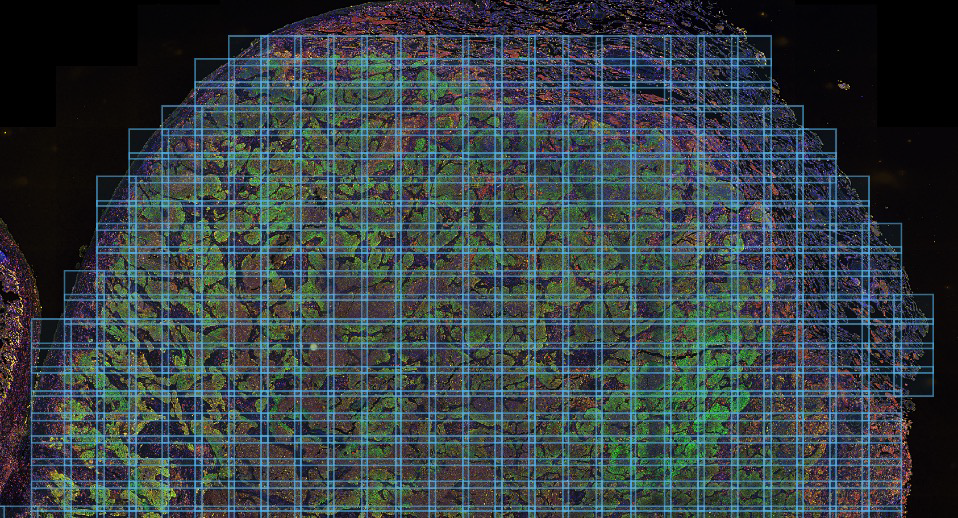AstroPath: Where Astronomy Meets Pathology
Researchers at the Mark Foundation Center for Advanced Genomics and Imaging at the Institute for Data-Intensive Engineering and Science (IDIES), Johns Hopkins University, together with the Bloomberg~Kimmel Institute for Cancer Immunotherapy, have developed AstroPath—a revolutionary platform designed to guide help predict which patients are likely to respond to a given therapy, as well as to identify the next-generation of therapeutic targets.
AstroPath adapts tools from the Sloan Digital Sky Survey (SDSS) to generate high-fidelity, whole-slide spatial maps of the tumor microenvironment (TME). By leveraging multispectral imaging and treating cells like stars or galaxies, AstroPath profiles 100,000–2 million cells per slide, offering an unprecedented single-cell view of tumors and enabling smarter, more personalized treatments.
To democratize access to these massive datasets, AstroPath partners with SciServer to provide server-side analysis through virtual machines preloaded with Jupyter notebooks and AstroPath data. For step-by-step guidance on how to access the data, see our Getting Started with AstroPath in SciServer documentation.
In brief, create a SciServer account and head over to the “Science Domain” tab to join the AstroPath science domain. At that point, you’ll have full access to the datasets through either the CasJobs API or a SciServer container. Additional information on the available AstroPath datasets can be found under the Biomedical Datasets page, and more information on the AstroPath project can be found below.
The AstroPath website includes information about our team, publications, awards, and presentations. We also provide a demo of CellView.
CellView
The CellView platform is being developed as AstroPath’s interactive visualization hub. CellView will enable real-time exploration of TIME maps and will be released in the coming months. By dynamically processing the images server-side at varying zoom levels, CellView allows fast access to the raw images, cells, and annotations in real time.

AstroPath GitHub Organization
The AstroPath GitHub organization contains all of the publicly available code for the AstroPath pipeline in addition to analysis code that was used for publications. Later this year we will release dedicated python packages tailored to these datasets, including an efficient Python API for the AstroPath SQL databases. The documentation for the API will include a full database schema along with comprehensive tutorials and example workflows to support users in querying, analyzing, and visualizing the data effectively. Currently available repositories (relevant to the platform) include:
- AstroPathPipeline: The automated pipeline for processing mIF imaging from microscope to database.
- MaSS (Merge a Single Sample): MATLAB code used to consolidate multi-pass inForm phenotypes into a single uniform coordinate system using hierarchical rules.
- WSIMIR (Whole Slide Imaging, Mutual Information Registration): Perform reference free fully-automated multi-modality/multi-channel whole slide to whole slide pathology image registration.
- DONUTS: The SQL code used for the publication “Novel Predictive Spatial Biomarker in Non-Small Cell Lung Carcinoma: The Diversity of Niches Unlocking Treatment Sensitivity (DONUTS)”
Additional Links
For additional background information on AstroPath, check out our profile in the economist, Mapping cancer as if it were the universe, or in Genetic Engineering & Biotechnology News, Spatial Multiomics Powers Pathology Prediction.

